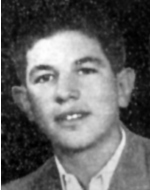Zvi, the only son of Daughter of-Sheva and Feibush, was born on April 3, 1927 in Poland, in the town of Zaleszczyk in Galicia, on the banks of the Dniester River, where he grew up in his hometown, The Jewish community in Zaleszczyk numbered about 2,500. At the beginning of the war, the area was conquered by the Germans and immediately afterwards the Jews were concentrated in the ghettos and in the coming months all the Jews of the area were sent to extermination camps. All the members of Zvi’s family were liquidated by the Germans, and he himself was on the brink of death when he was lined up in front of the murderers with whom he was standing And managed to escape, but Zvi managed to escape, and found refuge with Christian farmers, who apparently accepted all their customs, but even hid in the village. In 1946, Zvi immigrated to Israel on the ship “Dov Hoz” (“Fada”), which was purchased by the Mossad for Aliyah Bet of the Haganah. From which the ships were supposed to sail. The affair began when about 1,000 immigrants gathered at the Italian port, preparing to board the ships. The British, who were in control at the time, discovered the plan and tried to prevent their departure. The immigrants prepared for a long struggle and began a three-day hunger strike, joined by the leaders of the Yishuv. The affair, when the Nuremberg Trials are being waged against Nazi criminals, aroused widespread media and public attention and embarrassed the British. Under pressure from world public opinion and after protracted negotiations, the British had to surrender and allow the ships to sail. Dov Hoz and Eliahu Golomb set out on their way to Israel on May 8, 1946. Five days later, upon their arrival at the port of Haifa, their passengers were allowed to leave with the consent and supervision of the British authorities and were dispersed throughout the country. When he arrived, Zvi set up his residence in Holon. His relatives in the United States urged him to come to them, but he refused to leave the country and chose a working life. Even when he was asked by the Zaleszczyk organization to come and work for them, he refused to leave the country. He worked in carpentry and in the Lodzia factory, and for a time served as a guard. His cousin tells of a man with a fresh and generous spirit, who spread light and joy around him, and which was a source of comfort and support for her. Zvi was devoted to his friends with all his soul, treated them like his brothers and with love they shared bread. Before the War of Independence, Zvi was a member of the Haganah. When the war broke out he did not wait for the call but hurried to join the fighters. He served in Battalion 51 of the Givati Brigade, the 5th Brigade in the Haganah. In this framework he participated in many activities, first as a rifleman and later as a translator. Participated in the battles that took place around Holon and Daughter of-Yam, in the battle of Tel Arish, Beit Dajan and more. In one of the battles, which took place on a dark, starless night, Zvi wandered between enemy positions, but managed to slip away and return safely to his base. In the attack on Jabalya, when he saw his gunmate lying in a puddle of blood, he ran to him under a shower of fire and moved him to safety. In one of the operations against the rioters’ village, a “Molotov cocktail” exploded on his knees, but Zvi quickly recovered himself and returned to the fighting. In May 1948 Zvi participated in Operation Maccabi. Operation “Maccabi” began on May 8 and its goal was to break through to the capital of Israel, to conquer the threatening settlements in the Jerusalem corridor and Latrun. On the 3rd of Iyar 5708 (May 12, 1948) a force from the Givati Brigade came out with a number of armored vehicles to transfer ammunition to the Palmach’s Harel forces in the eastern sector. Near Deir-Ayoub (near Hulda) encountered British armored vehicles that opened fire on it and absorbed many casualties, including ten dead. Zvi, who was driving in the first armored vehicle, was hit by an enemy shell and killed. Twenty-one years old. Zvi was brought to rest in the military cemetery in Nahalat Yitzhak. This hero is a “last scion”. The survivors of the Holocaust are survivors of the Holocaust who survived the last remnant of their nuclear family (parents, brothers, sisters, sons and daughters) who experienced the Holocaust in the ghettos and / or concentration camps and / or in hiding and hiding in territories occupied by the Nazis and / Or in combat alongside members of the underground movements or partisans in the Nazi-occupied territories who immigrated to Israel during or after World War II, wore uniforms and fell in the Israeli army.
